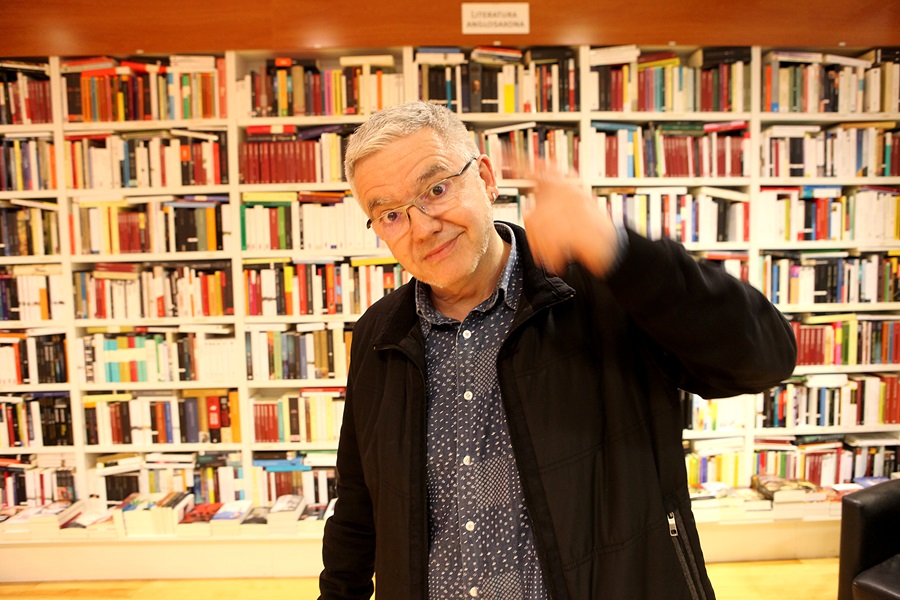- Face to face
- 12 de June de 2024
- No Comment
- 6 minutes read
Màrius Serra: “The education system should recover some of the traditional goals”

FACE TO FACE WITH…
Màrius Serra, writer and journalist
Màrius Serra: “The education system should recover some of the traditional goals”
In order to the acquisition of basic knowledge of language and mathematics, with special emphasis on reading


Màrius Serra i Roig (Barcelona, 1963) is a writer, graduated in English Philology and member of the Philological Section of the IEC. His broad work revolves around literature, language and play. His literary work has been awarded with different prizes such as Ciutat de Barcelona, Serra d’Or, Lletra d’Or, Ramon Llull, Sant Jordi and translated into eight languages. It includes such varied works as the Verbàlia essay, the ludocriminal novels of the Comas series, the children’s series “Les aventures de la Napeu“, the complete version in current Catalan of Tirant lo Blanc and Quiet, in which he portrays life next to his disabled son. His latest novel is La dona més pintada (The Most Painted Woman) (2023). Currently, he is columnist and responsible for the crosswords in Catalan language for La Vanguardia (since 1990) and L’enigmàrius in El matí de Catalunya Ràdio (since 2006).
Màrius, could you tell us some details of your current project?
My most recent professional project has been to write a dramaturgy of Tirant lo Blanc which we will premiere at the Romea theater next July, directed by Joan Arqué in charge of an extraordinary cast that includes the music of Judit Neddermann. I started from the current Catalan rewriting of the complete novel that I published in 2020 in Proa, but it has been an extraordinary experience because dramatic writing requires another kind of language and must always keep in mind what you’re writting is to be depicted on a theater scenario.
Looking at your long professional career, what positive relationships would you establish between your professional projects and the educational training you received?
The main positive relationship would be that I received an education (at the Salesians of Horta) based on what we could call the culture of effort. The rest is more debatable.
What do you mean?
Well, they wanted to indoctrinate me in religious values that I don’t practice and, mainly, because they didn’t give me a single minute of class in my Catalan language, nor I was told of antything about my own culture.
Were there different times?
Of course, this is why I have dedicated all my professional activity to the language and literature in Catalan.
“I was one of the first generations that studied English and, in fact, I followed that path at university”
Regarding the current education system, if you had been trained in it, would this have improved or worsened your professional activity?
It is difficult for me to say, because I would certainly have been equipped with many more verbal tools in my language, catalan, in which I carry out the main part of my professional activity.
And the effort you mentioned earlier?
Well, perhaps the current system would not have conveyed to me so directly the importance of the effort and, in any case, he would have deprived me of the strenuous adventure of rediscovering my mother tongue as a cultivated language. Also, although in my time it was still more common to learn French as a foreign language…
But you have a degree in English Philology, not French
It’s just that I was one of the first generations that studied English and, in fact, I followed that path at university and graduated in English Philology at the UB (University of Barcelona).
Finally, I would like to ask you how you think the current education system should be improved?
It seems to me that the education system should recover some of the traditional goals in order to the acquisition of basic knowledge of language and mathematics, with special emphasis on reading.
Source: educational EVIDENCE
Rights: Creative Commons

